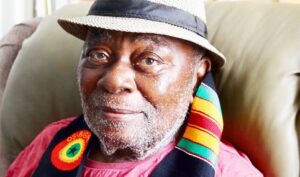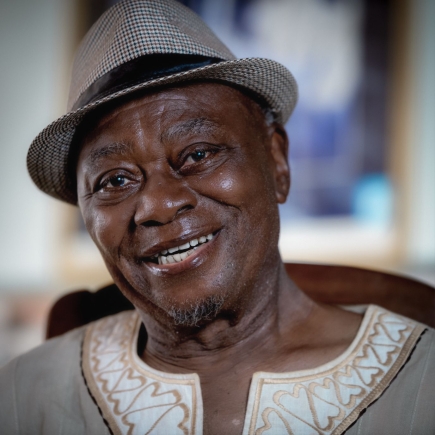adverts
Teddy Osei, the celebrated Ghanaian musician and founding member of the Afro-rock band Osibisa, has passed away at the age of 88.
His death was confirmed by Bessa Simons, president of the Musicians Union of Ghana (MUSIGA), who revealed that Osei died on the morning of Tuesday, January 14, 2025.
Born in Kumasi, Ghana, Teddy Osei’s love for music began at a young age. While in college in Sekondi, he attempted to form a band with friends, which led him to pick up the saxophone—a decision made out of necessity when another musician failed to attend rehearsals. Osei taught himself the instrument, inspired by jazz records and the vibrant rhythms of Ghanaian highlife music.
adverts
After college, he worked briefly as a building inspector before forming his first band, The Comets, with his brother and friends. The group gained local popularity, recording with Philips West Africa and performing on radio shows, blending highlife’s unique fusion of European and African influences.

In 1962, Osei left Ghana for London, using his savings to fund the trip. He worked as a dishwasher while pursuing his passion for music. A grant from the Ghanaian government allowed him to study at a private music and drama school for three years.
However, this support ended abruptly in 1966 following the overthrow of Ghanaian President Kwame Nkrumah.
Undeterred, Osei began performing soul music with a group of fellow students who had also lost their government support. This collective eventually became known as Cat’s Paw, gaining a following in Switzerland before returning to the UK.
In 1969, Teddy Osei co-founded Osibisa, a groundbreaking band that fused African rhythms with rock, jazz, and funk influences. The band included members like Sol Amarfio and Osei’s brother Mac Tontoh. Osibisa’s music transcended borders, earning international acclaim during the 1970s with hits such as Sunshine Day and Dance the Body Music.
Osibisa’s vibrant sound and energetic performances introduced African music to a global audience and inspired countless artists across genres. Despite a decline in mainstream popularity in later years, Osibisa continued to perform and remained a symbol of African musical innovation.
Teddy Osei’s life and career exemplified resilience, creativity, and a commitment to cultural expression. From his beginnings in Kumasi to international stardom with Osibisa, he remained a pioneer of African music on the world stage.


